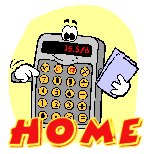This project was designed to integrate an English Language Arts activity (a shared reading) with a math activity, while incorporating a technology component. The choice of story ties into the Social Studies curriculum, Community Helpers.
Procedure
1. Teacher will read the story, "When I Grow Up" as a shared reading.
2. After reading the story, teacher will survey the class as to their
favorite occupation. Enter this information into the Data
Gathering Form.
3. Using the large presentation system, teachers may then enter the data into the spreadsheet template. (Read directions for downloading the template here.) An alternative is to use the website: http://nces.ed.gov/nceskids/graphing/index.asp to generate the graph. (Note that you will need to use the Back button to get back to the project webpage.)
3. Discuss results of graph using/introducing key words such as more than,
less than, all together, how many more, how many less.
4. Teacher will model for the class an example of a word problem based
on one occupation.
Examples:
- A teacher has a class of 18 students. She has 14 pencils. How many more pencils would she need so that each student has a pencil?
- Farmer Jones has 8 fields of hay, 4 fields of corn and 2 fields of alfalfa. How many fields does he have all together?
5. Students will develop their own math word problem based on their choice of occupation. Have students use the Word Problem Template for their rough copy.
6. Students will create their final copy of the word problem which may
be posted on the website using one of the following:
- Use the Word Problem Template again as a final version. Make sure to use markers and write clearly so that the document can be scanned and posted to the Internet.
- Use KidPix to create the final version. See samples on Student Page.
Suggested Extension Activities
Suggested Extension Activities:
- Students will solve other word problems posted on the project webpage
- Collect data from the other second grade classrooms in your school and compile a graph of chosen occupations of all second grade classrooms. Compare to your chart and compare and contrast. (See template directions)
- Collect the data from other classrooms in the other schools and compile a graph using the template (See template directions). Compare and contrast the chart. Do students at one school choose different occupations students at our our school?
- Read a story about one of the occupations surveyed
- Create a pictograph based on the survey, using KidPix
- Create their own surveys and create a graph from the information provided
- Do a writing assignment based on the occupation chosen
- Invite community members of various occupations into the classroom
- Do the Community Helpers Webquest
- The Important Book by Margaret Wise
Brown
Using the format from Margaret Wise Brown's The Important Book, students will share a poem and picture that describes an occupation of their choice.
Example: The important thing about a nurse is that she takes care of people. She makes them feel better when they are sick. She gives them food. Nurses give sick people medicine. But the important thing about a nurse is that she takes care of people.
Content Outcomes
- Which operations are associated with each keyword
- What symbols are associated with each operation
- How to construct and develop a proper number word problem using appropriate mathematical keywords
Process Outcomes
- Apply the operation to the appropriate keyword
- Formulate a plan for solving a math word problem.
- Read and understand a math word problem.
- Develop a number sentence.
- Illustrate a number sentence.
- Check to see that the answer to a math word problem is reasonable.
Student Assessments
- Checklist for word problem:
- Does the word problem make sense?
- Does the answer make sense?
- Does the number sentence match the picture and words?
- Present math problem to the class to share and explain

